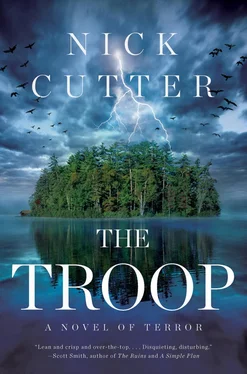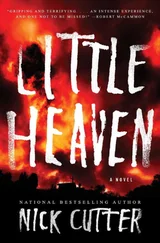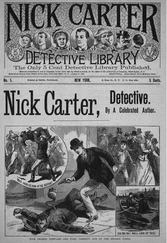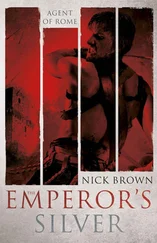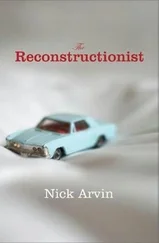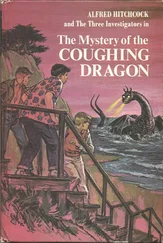“Who were you talking to?” Max said. When Ephraim didn’t answer, Max said: “You’re not any skinnier. You still look the same , Eef.”
Mostly the same , he thought queasily.
Fact was, Ephraim appeared more or less as he had when the boat first dropped them off. He’d lost a few pounds, but so had Newton and Max.
“It’s inside of me,” Ephraim said.
Newt said: “How do you know for sure?”
“A little birdie told me, okay?” Ephraim spat pure red. “I know .”
There was a tone of Stage 5 acceptance in Ephraim’s voice; he could have been telling them he had inoperable brain cancer. Max figured it wasn’t worth fighting. As his father said: You can’t argue with someone who’s already made up his mind . He exchanged a knowing look with Newton; a silent pact was settled upon. If this was what Eef believed—that he had a worm inside of him—okay, they’d accept it for now. Anything to stop him from cutting himself.
Newton rummaged the first aid kit from his pack. Swabs of peroxide and iodine no bigger than the Sani-Cloth wipes you get after a messy meal, butterfly bandages, a spool of gauze no bigger than a roll of quarters. Pitiful, really, when facing bodily devastation like this.
Max attempted to paste a bandage over the gash in Ephraim’s cheek. Eef screamed—a shocked bleat—so loud that Max’s hands fled from his face.
“What do you want , Eef?”
Ephraim fixed Max with a pleading look. “Get it out of me.”
“How?”
“Newt, you’ve got a better knife than mine. It’s burrowed deep. It’ll take a longer blade.”
Newton covered his mouth with his hand. He couldn’t imagine hacking into Eef in search of something he knew he’d never find—not after the turtle. Not ever, at all.
“I can’t do that, Eef.”
“Pussy.” Ephraim spat the word out like poison. “Max—your dad cuts people, right? You helped the Scoutmaster. You could do it.”
The best tactic was the one that stopped Ephraim from doing more damage to himself, Max figured. He’d tell him anything he wanted to hear.
“I can do it, Eef. But not here. We need a cleaner site. You could get infected.”
“I already am infected.”
“Yeah, but if I cut really deep and get it, we’ll still need to patch you up. There’s a medical kit back at camp.”
“I found some mushrooms, too,” said Newt. “They should make you throw up and… poop your pants. Maybe we can get it out without having to cut.”
Ephraim closed one eye as if he were squinting through a telescope. “Y’think?”
Max slipped Ephraim’s Swiss Army knife into his pocket. “We get you back to camp and try the mushrooms. If that doesn’t work, I’ll use the knife. Deal?”
Ephraim squeezed his eyes shut. Long, thick veins pulsed at his temples. My God , Max thought, they really do look like worms .

36
THEY RETURNEDto camp to find Kent gone.
It had taken nearly three hours to half carry, half drag Ephraim back. His wounds kept tearing apart and bleeding. The rusty smell of blood clung to their clothes—could he infect them that way? Only if he was infected, which both Max and Newton couldn’t quite believe.
By the time they got back, ashy afternoon light was already hanging between the trees. They laid Ephraim on the picnic table by the cabin. Newton went round to check on Kent. The cellar doors were flung open.
“Kent?” Newton called down. “Kent!”
He inspected the doors. They didn’t look to have been busted open. Maybe the stick Ephraim jammed between the handles had snapped or rattled free in the wind? Which could mean that Kent had escaped. He could be out there in the woods.
And no sign of Shelley either—a fact that was not a concern because it was a relief not to have him around, yet deeply concerning, seeing as neither boy wanted to contemplate what Shelley might get up to out of sight.
“You see Shel?” Newton asked Max back at the picnic table.
Max shook his head. “You think something happened?”
“Something must’ve happened, right?”
Mercifully, Ephraim had passed out. Blood loss, shock. They left him temporarily, unease gripping their postures—the boys walked with a slight stoop, shoulders hunched against a phantom breeze—as they made their way down to the shore.
“What if Kent’s gone?” Newton said quietly.
“Gone where, Newt? What do you mean?”
In truth, Newton didn’t know. A shape sat in the dead center of his mind—only a notion, really. Its outline was nebulous but he could make out its heart: a dark and sinister silhouette within the larger blackness that winked and writhed and wanted to play.
“Do you think he might’ve tried to swim back?”
Max kicked a pebble. “He’d be crazy to try… that doesn’t mean I can’t picture him doing it.”
“Do you think he’d make it?”
If he’d actually done it, Max was sure Kent was dead by now. The water was freezing, the undertow deadly—plus he had a strong suspicion Kent might not be welcomed with open arms even if he’d managed to reach shore.
Max put Kent out of his mind for now. A merciless strain of expediency had settled over his thoughts. Ephraim needed help and was right here to receive it. Kent was gone and therefore beyond immediate help.
Max wondered how he and Newton had managed to stay sane these last few days. This thought arrowed out of the clear blue. They were still okay, seeing what they’d seen, where Ephraim and Kent and Scoutmaster Tim and maybe Shelley had cracked. He couldn’t say why that was, exactly… it wasn’t that he didn’t feel the same fear. Human beings couldn’t function in a state of perfect ongoing terror, could they? Their bodies would seize like a car with sugar in its gas tank, minds fusing shut as paralysis leeched into their bones. Constant, unending terror warped minds; brains thinned and went brittle and then snapped—that’s exactly how Max pictured it: a singing snap! like an icicle coming off a February eaves trough. It could happen to anyone. It’d happened to Eef, hadn’t it? But everyone’s built to different tolerances, and you didn’t know your breaking point until the instant you hit it.
How had Max kept that crushing fear at bay? He didn’t really know—maybe that was the trick? Maybe it was that he’d found a way to bleed it away in the quiet moments. Breathing deep, feeling it slipping from him in almost imperceptible degrees.
Maybe Newton had his own strategies—or maybe it wasn’t anything you could strategize. It came down to that flexibility of a person’s mind. An ability to withstand horrors and snap back, like a fresh elastic band. A flinty mind shattered. In this way, he was glad not to be an adult. A grown-up’s mind—even one belonging to a decent man like Scoutmaster Tim—lacked that elasticity. The world had been robbed of all its mysteries, and with those mysteries went the horror. Adults didn’t believe in old wives’ tales. You didn’t see adults stepping over sidewalk cracks out of the fear that they might somehow, some way, break their mothers’ backs. They didn’t wish on stars: not with the squinty-eyed fierceness of kids, anyway. You’ll never find an adult who believes that saying “Bloody Mary” three times in front of a mirror in a dark room will summon a dark, blood-hungry entity.
Adults were scared of different things: their jobs, their mortgages, whether they hung out with the “right people,” whether they would die unloved. These were pallid compared to the fears of a child—leering clowns under the bed and slimy monsters capering beyond the basement’s light and faceless sucking horrors from beyond the stars. There’s no 12-step or self-help group for dealing with those fears.
Читать дальше
